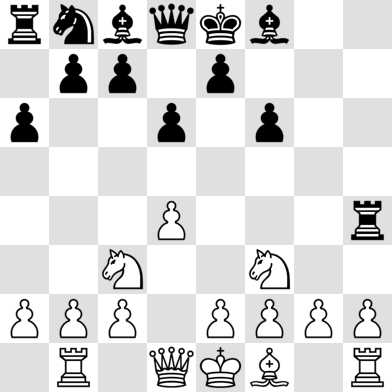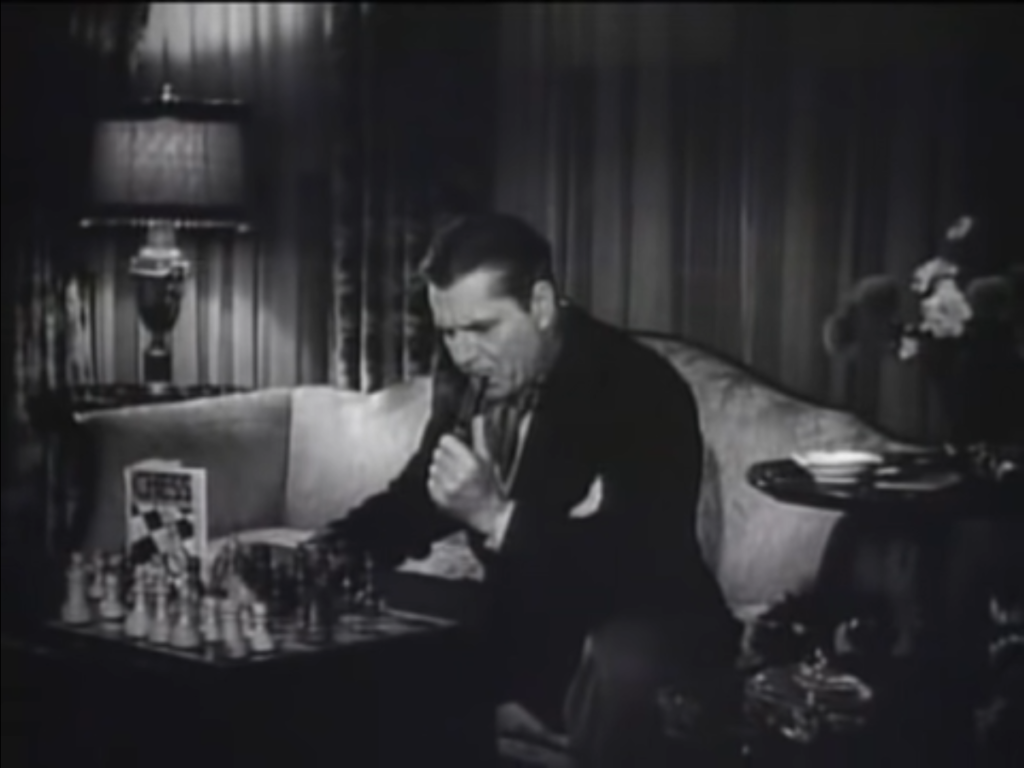Have you ever heard of the Crime doctor franchise? It is about doctor Ordway, a criminal psychologist who helps the police solve cases. Nowadays, it is almost entirely forgotten, but in the forties it was huge. For seven years, there was a radio series on CBS and Columbia Pictures made ten films. And they had some star power: Oscar winner Warner Baxter played the title role and this particular episode, Crime doctor’s warning, was directed by William Castle, who went on to produce among others The lady from Shanghai and Rosemary’s Baby.
The plot revolves around a patient of Ordway’s, a young artist who suffers from memory lapses. His model turns up dead and the suspicion naturally falls on him. Obviously, he didn’t do it, because otherwise there wouldn’t be a show.
Not too long into the movie, we see the doctor at the chessboard — with a chess book, no less! I have not been able to identify the book in question,1 but I think it is some introductory book from which the doctor is probable learning some opening principles. I base this assumption on the title, which just seems to be “chess”, and the fact that the pieces are almost all in their starting places.
Then, however, I took a closer look:2
 Now, this reconstruction should be taken with more grains of salt than is good for you. The king’s side is probably correct, but the centre and the queen’s side are dubious. For example, I only put the d-pawn on d4 because white’s dark-squared bishop must have gotten out to be taken.3 Whatever the case may be, the position is preposterous and certainly not something from any beginner’s chess book.
Now, this reconstruction should be taken with more grains of salt than is good for you. The king’s side is probably correct, but the centre and the queen’s side are dubious. For example, I only put the d-pawn on d4 because white’s dark-squared bishop must have gotten out to be taken.3 Whatever the case may be, the position is preposterous and certainly not something from any beginner’s chess book.
I’m not sure I’d trust this doctor to diagnose a bruise. Or perhaps he has been the victim of a horrible crime: his book was cut open, the pages replaced by some nonsense, and the thing was bound again in the original cover. And he never even discovers the crime!
Realism: 2/5 At least no pieces are on hard-to-reach squares. It’s sad that that gets you two out of five already.
Probable winner: Who knows? The involved parties seem to have little regard for material or positional advantages. But as the doctor is playing both sides, he’s likely to get the point.
1. [Any help is welcome!]↩
2. [The diagram doctor’s warming up to this.]↩
3. [Unless a knight sneaked in, I know.]↩
